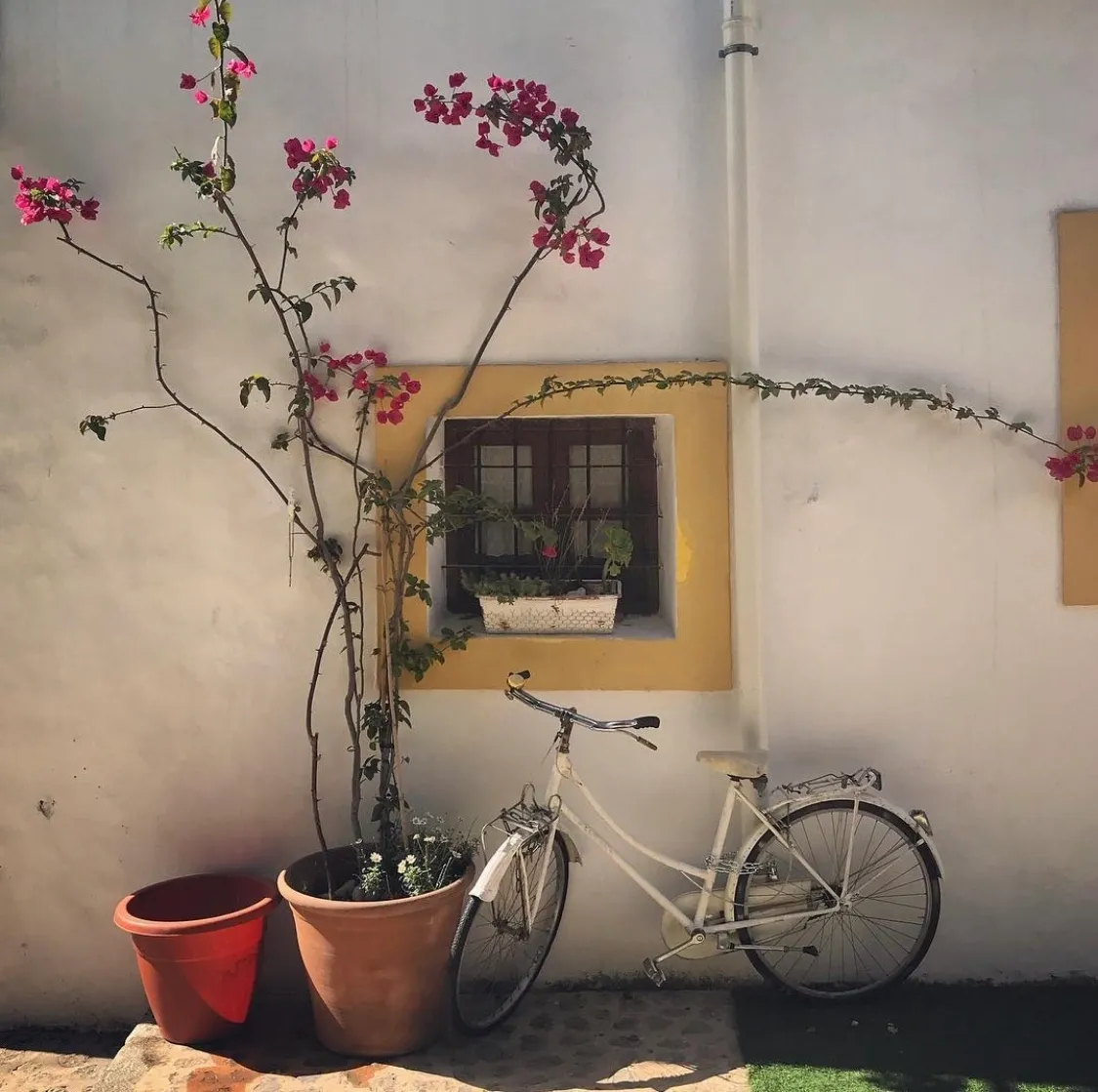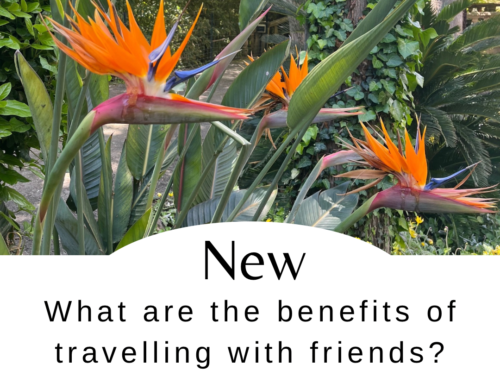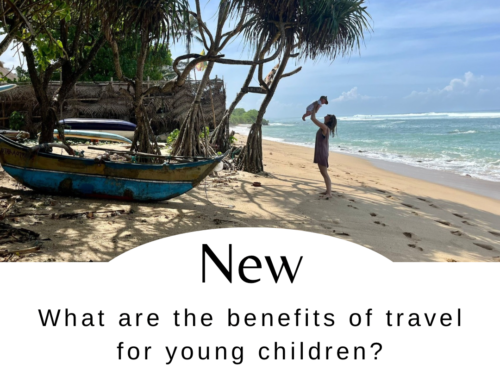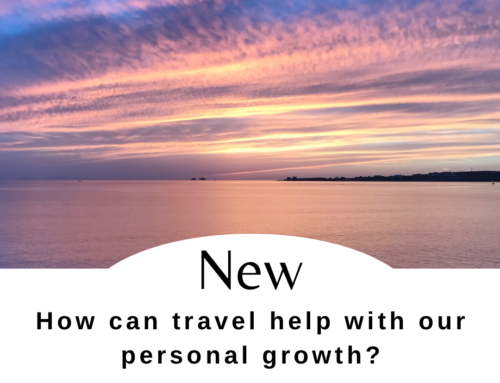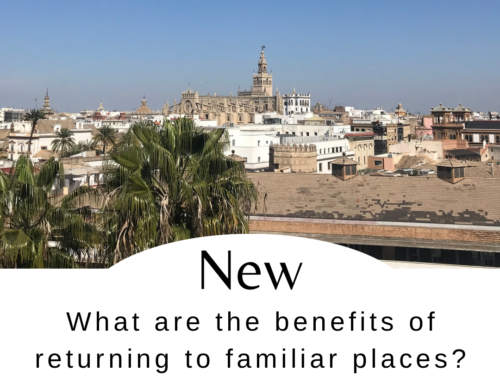By Dr Charlotte Russell, Clinical Psychologist & Founder
It’s intuitive to believe that travel can increase our creativity, but does the evidence support this? Furthermore if travel can increase creativity, how does this happen? In this article I’m going to talk you through these questions. We’ll start with what creativity is and why it is good for us. We’ll then move on to how travel can help to fuel our creativity and help us to flourish. You probably didn’t need another reason to book a trip, but just in case you do, read on.
What is creativity?
There has been considerable debate in psychology how to define creativity, how to measure it and how it may relate to other aspects of our personality. What we do know with some confidence is that creativity is different to and quite separate from intelligence, and not closely related to measures such as IQ. So those who score in the top 10% for IQ in a class or organisation, are unlikely to be the same individuals who are in the top 10% on measures of creativity (Maltby et al., 2017).
We all probably have a sense of what creativity means to us, although it can be hard to define. Characteristics might include having a vivid imagination, being full of ideas, and enjoying thinking of new ways of doing things (Maltby et al., 2017). It can be helpful to make the distinction between enjoying the creative process for reasons of self-fulfilment, and the results of the creative process being recognised by others.
We can be creative with our thinking, how we approach a task, and in having vision to come up with something new. Activities that are traditionally viewed as creative, such as painting, drama, poetry, music, and crafting involve two sets of skills; the vision to imagine something and technical skills to create it. As we know technical skills such as writing, painting, composing or singing can take years to master. In order to be successful in the creative world requires both the ability to envision the finished piece and the skills to make it happen.
Can creativity help with our well-being?
There has been some good evidence that creativity can be beneficial for our well-being. A recent study asked young adults to fill in daily measures of their creative activities and various aspects of well-being over a two-week period (Conner et al., 2018). They found that increased creativity was related to more positive emotions the following day. Creative activities were also linked to a measure of ‘flourishing’, which includes ratings of meaning and purpose in life, engagement and social connectedness. What is most impressive about this study is that these links did not depend on personality factors or artistic skill. This suggests that being more creative on a day-to-day basis can help us to thrive whether or not we consider ourselves to be naturally creative.
Creative activities of any sort can be particularly beneficial for our well-being when we are able to achieve a state of ‘flow’. This involves becoming fully engaged and absorbed in an activity, enjoying it and losing our sense of self awareness and time. Another recent study found that finding flow within creative activities was related to well-being (Tse et al., 2021). However, the authors suggested that this link between flow and wellbeing was important only for those with certain personality traits including being curious, being naturally motivated and enjoying challenges. In contrast to the previous study, this suggests that the link between creativity and well-being is more nuanced. That said there are so many ways to be creative that perhaps the most useful piece of advice is to explore and find the ways of being creative that work best for you.
What are the barriers to creativity?
The time it takes to nurture our own creativity, and to develop creative ideas and skills is the biggest barrier to being creative. We have busy lives which are often highly focused on productivity and ‘to be creative’ is not the kind of thing that you can stick in your diary for a half-hour slot and expect it to happen! We need to flex our creative muscles on a regular basis or like anything, these abilities can wane.
We know that one important way to nurture and enhance creativity is being in environments that reward and celebrate creativity (Maltby et al., 2017). In contrast to this, I think as a culture particularly in the UK, we do not place enough value and on the creative arts and industries. This means that engaging in creative activities isn’t really viewed as the norm for most people. This means there are barriers to those who want to develop their creativity as they are not encouraged to develop their interests and talents, and worse perhaps met with criticism and lack of understanding. Criticism from others and self-criticism are huge creativity-killers so it is important to be able to step back from this and to see value in the creative process, even when others don’t.
In the world of work, unfortunately having creative ideas isn’t always rewarded. Many organisations can prefer conformity over creativity and it can be a challenge to find environments where creativity is valued (Kelly & Medina, 2015). This is a real shame as we know that teams and organisations that foster environments where team members feel able to generate ideas and to brainstorm are more innovative and better able to deal with change. However, nurturing creativity requires investment and leaders that value creativity and have the time, trust, humility and patience to support their staff to develop creative ideas.
How can travel help with creativity?
This is a really interesting question and one that hasn’t been answered by any research. However, looking at the things that we know can enhance creativity, I’ve highlighted a few ways in which travel can provide the conditions for creativity to be sparked.
The ‘incubation’ process
Many of us will have noticed that taking ourselves away from a problem for a period of time can help us to come up with a solution without much thought.
There are also lots of anecdotal reports of this in history; famously the mathematician Henri Poincaré was quoted saying “The incidents of the travel made me forget my mathematical work” about a trip that helped him to come up with a solution related to his pioneering work.
In fact, there is good evidence that having an ‘incubation’ period away from a problem can help us to come up with creative solutions (Ritter & Dijksterhuis, 2014). This is due to unconscious processing that can happen when we are away from the situation. This in itself means that travel can provide this important opportunity for creative thinking and problem solving, albeit unconsciously.
Appreciating multiple perspectives
Travel can be important in helping us to understand and appreciate different perspectives and ways of seeing the world. An important aspect of creativity is what psychologists call ‘divergent thinking’. This involves the generation of lots of different ideas in response to a problem. This is the opposite of convergent thinking which is holding the view that there is one single solution to any given problem.
Divergent thinking is the ability to brainstorm, see multiple perspectives, to appreciate what is known and what is unknown, and to think about the problem from difference angles and within its context (Maltby et al., 2017). It also might involve questioning our own assumptions, which may give us useful information. Essentially divergent thinking is creative problem solving in action. In my opinion this can absolutely be enhanced by travel, experiencing different ways of seeing the world and broadening our horizons!
The role of inspiration
Inspiration is an inner motivation which is sparked in us by something that we experience in the external world (Thrash and Elliot, 2003). Being inspired can evoke deep and intense feelings, and tends to capture our attention to a greater extent than our usual thoughts or concerns (Thrash and Elliot, 2003). We might feel inspired by freedom, beauty, ideas, and experiencing something new. The inspiration that we experience might be targeted towards the generation of new ideas, to working on ourselves, or to creating something such as a piece of art or poetry. In essence we are usually inspired by something to do or create something.
We are more likely to experience potential sources of inspiration when we are travelling and experiencing new cultures. Reflecting on my own experiences there are many things that can inspire me when I am travelling including the kind welcome, the culture and lifestyle, beautiful buildings, performance arts such as flamenco, and the landscape. Even just being outside, the warm weather, the sea and the blue sky can be inspiring for some.
Of course inspiration on its own is not sufficient to create. Thomas Edison famously wrote that his work came down to “one percent inspiration and ninety-nine percent perspiration”.
Being on a trip might be a good time to be inspired but when we get back home is often the time for us to make our creative vision come to life. Those of you who are regular readers will know that this is exactly how the Travel Psychologist project came to fruition and I’m sure this isn’t the only example. Responses from our Instagram community suggest that an impressive 94% of those who responded feel more inspired when they are on a trip. Our community may be a skewed sample, but I can’t think of a better source of inspiration than the feeling of freedom when travelling!
How can I use travel to increase my creativity?
The following tips can help you to use your travel experiences to increase your creativity:
- To help with the ‘incubation’ process try to detach from work and other demands while you are travelling. Try to immerse yourself in your surroundings and take in all of those little details.
- To try to appreciate different perspectives be intentional in noticing any cultural differences or nuances. It is important to take an ‘observer’ stance rather than to judge differences, either positively or negatively. Talk to your travel companion about what you notice or if you are travelling solo, try using a travel journal. For tips on how to do this check out my article Travel journal prompts: guidance from a psychologist
- Talk to local people as much as possible! Making small talk can be a powerful way to understand more about the culture and place that you are visiting.
- Look for ways to record things that you have been inspired by. This could be a journal, or sketch book or even by taking photographs on your travels.
- Documenting our travels can be a great way to facilitate creativity. I say this as someone who has a travel blog which has enhanced my own creativity in a really profound way! This is not the only way though. It can be as simple as creating a photo album in your phone where you keep your favourite photos from that trip. When it comes sharing on social media, see our guide to Should I share my travel photos on social media?
References
Conner, T. S., DeYoung, C. G., & Silvia, P. J. (2018). Everyday creative activity as a path to flourishing. The Journal of Positive Psychology, 13(2), 181-189.
Edison, T. (1903). Spoken Statement. Harper’s Monthly, September 1932.
Kelly, L. & Medina, C. (2015) Rebels at Work: A Handbook for Leading Change from Within. O’Reilly Media.
Maltby, J., Day, L. & Macaskill, A. (2017) Personality, Individual Differences and Intelligence (4thEd). Pearson.
Oleynick, V. C., Thrash, T. M., LeFew, M. C., Moldovan, E. G., & Kieffaber, P. D. (2014). The scientific study of inspiration in the creative process: challenges and opportunities. Frontiers in human neuroscience, 8, 436.
Ritter, S. M., & Dijksterhuis, A. (2014). Creativity—the unconscious foundations of the incubation period. Frontiers in human neuroscience, 8, 215.
Thrash, T. M., & Elliot, A. J. (2003). Inspiration as a psychological construct. Journal of personality and social psychology, 84(4), 871.
Tse, D. C., Nakamura, J., & Csikszentmihalyi, M. (2021). Living well by ‘flowing’ well: The indirect effect of autotelic personality on well-being through flow experience. The Journal of Positive Psychology, 16(3), 310-321.
If you liked this article check out What are the psychological benefits of travel?

